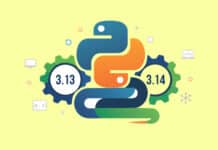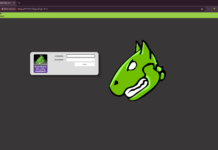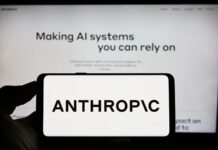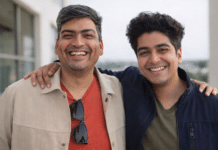FOSSTIVAL 2009 (9th-11th January 2009) at IIMT Engineering College, Meerut was like a breath of fresh air within the FOSS world of UP. Jointly organised by ‘GNU/Linux User Group-Meerut’ and IIMT Engineering College, the workshop focused on grooming budding hackers from all over India. It was one among a few ‘FOSS-only’ development workshops in north India.
As the GLUG-Meerut coordinator Mohit Singh said, “FOSSTIVAL 2009 is the first step of its kind in the journey of the software freedom movement in UP and the associated regions. As it follows the guideline, ‘of the hacker, for the hacker and by the hacker’, we firmly believe that it will create a big bang for FOSS in the region and beyond.”
Being the first national FOSS event of the year, FOSSTIVAL 2009 attracted the entire Indian FOSS community by involving hackers of national recognition as well as covering rarely touched topics of wide importance in academics, industry and research. The motive was to act as a catalyst and an appetiser for young minds as well as to attract fresh talent from the large number of engineering colleges in Meerut and beyond.
The workshop had two parallel hands-on tracks from the LAMP stack (called FOSSTIVAL LAMPsticks): ‘Open Source Web Development’ and ‘GNU/Linux System Programming’. The first track focused on Apache, MySQL, PHP and Open Source Projects like ‘Sahana’, while the second track covered GNU/Linux BASHing, GNU ToolChain, POSIX API, GTK+ Toolkit and Linux Device Driver Development.
A total of 76 engineering students and professionals from all over India participated in the event. The ‘breeding hackers’ team had Vivek Khurana (Delhi, the guest of honour), Atul Jha (Delhi, mukt.in), Gajendra Khanna (student coordinator, IIT-Delhi LUG), Mayank Kumar (student coordinator, IIT-Delhi LUG), Ajay Kumar (Sahana, GSOC ‘08), Pranava Swaroop (NIT-Jaipur), P. Govind Raj and Jai Bhaskar (both from the BOSS team of CDAC-Noida).
Media partners Radio IIMT-90.4 FM, the first community radio of North India, showed true community spirit by recording the historic promo for FOSSTIVAL 2009. The promo clearly defined a ‘hacker’ as: “A hacker is not a criminal, but instead, an artistic programmer! Come and become a true hacker at the IIMT FOSSTIVAL workshop.” Hats off to the director of 90.4 FM, who took a bold step towards spreading the truth about the ‘hacker culture’ among the public. The promo has been released under the Creative Commons Share Alike License on www.glug-meerut.org. The director of 90.4 FM, Braham Prakash Yadav, is working on creating an English version of the promo to be released under the Creative Commons. Richard Stallman wrote the following lines for FOSSTIVAL Promo at Radio IIMT 90.4 FM: “Hacking doesn’t mean breaking security, Hacking means playful cleverness. Come join us in hacking!”
Day 1: Booting it up
The first day (January 9) started with a bang! It was an unusual inauguration of a true hacker’s event—bursting more than a dozen balloons with names of different non-free software on them! The first balloon was burst by guest of honour Vivek Khurana. This ‘Halla Bol’ inauguration thrilled the budding GNU/Linux hackers!
Vivek Khurana took charge of the Web development track by recapitulating the science and technology behind the magic of the Web. He covered the HTTP client and server system, and how they run in a global scenario, the mark-up languages and their role in the Web, W3C, IETF and showed the role of hacking scripting languages for the Web ecosystem. The emphasis was on understanding the protocol standards and development standards for the Web.
Atul Jha initiated the GNU/Linux System Programming track with an overview of the system, shell tips and tricks, as well as a little dose of BASHing. The ground was set for a closer look at the software development ecosystem of the GNU/Linux system using a variety of software tools.
Day 2: Getting the kernel going
The Web track was started by Pranava Swaroop, who demonstrated how to ‘configure, learn and run’ the grand Apache server. Starting with the internals of Apache and the design of the Apache Web server, Pranava shared some tricks on installing, configuring, hosting and even securing the Apache server. The Apache kernel, http_core and libraries excited the young hackers. Other topics of interest with the audience were virtual hosts and mod_ssl usage.
Vivek Khurana followed, with an introduction to dynamic languages and the PHP execution model. He then moved on to a hands-on session on PHP. Participants developed PHP applications using the MVC paradigm. Vivek also shared the nuts and bolts of PHP like the data types, sessions, cookies, and OOP. The session ended with an introduction to MySQL and Web services.
In the systems programming track, Gajendra Khanna (IIT Delhi LUG) used the ground set by Atul to interact with GNU/Linux software tools. He started with the famous ‘vi versus Emacs’ and could not resist interacting with his favourite ‘Emacs Psychiatrist’ while comparing the two. The Eclipse IDE workhorse was a bonus for the audience. Gajendra demonstrated the intricacies of the GNU Toolchain members using simple programs. He covered GCC, Make, GDB and CVS, which seldom feature in workshops as harmonious elements of a standard toolchain.
Mayank Kumar (IIT Delhi LUG) followed Gajendra by initiating practical IEEE POSIX sessions. He moved from the Linux system call interface and went on to the file system interface, processes and POSIX threads, as well as covering a bit of signals and their usage. The hands-on creation and usage of processes and Pthreads gave enough food for thought to budding GNU/Linux systems programmers. The issue of portable applications was discussed in the light of POSIX. Several participants became eager to contribute to the systems programming-oriented open source projects.
Evening 2: Google Summer of Code in the winter of Meerut
In a special evening session, Ajay Kumar (Google Summer of Code winner of 2008) introduced project Sahana—the disaster management system, as a group member of the Sahana core development team. He discussed the brief history of Sahana—the humanitarian FOSS project, the problems faced by it, the technologies used, the deployment scenario, real-life deployments and case studies.
Ajay discussed the Sahana Request Management System, Messaging System and Real-Time Situation Maps with an emphasis on deployment aspects. A special attraction was ‘Sahana on Mobiles’. He inspired young hackers to take up the challenge and opportunities presented by the ‘Google Summer of Code’. He discussed the goals of the program, how it benefits the student community at large, what students could do with it and how it benefits them in terms of student stipends.
Day 3: Crunching the CPU
In the Web track, Vivek Khurana shared the nuts and bolts of Web database application development by introducing MySQL to the crowd. He gave a rapid-round recap of SQL and normal forms. Then he introduced a bit of PHP in the MySQL arena. He discussed the benefits of MySQL as a Web database and also helped his audience get a feel of it, hands on.
In the systems programming track, this was the day of the BOSS (Bharat Operating System Solutions) team from CDAC-NOIDA. Jai Bhaskar followed Mayank in an iterative hands-on GTK+ toolkit session, which mesmerised the participants. GUI programming in plain ‘C’ was an instant hit. Jai combined simple techniques effectively in small GTK+ programs. When the session was over, it was a new beginning for many. He discussed CDAC projects using GTK+ toolkit and inspired the hackers to play with it for a better future for the GUI on UNIX and UNIX-like systems.
P. Govind Raj is a Linux kernel hacker in the BOSS team. He specially prepared a session on ‘The Linux Kernel from 30,000 feet’, a practical kernel hacking introduction for newbies! His approach worked very well, and budding hackers had a warm feeling towards the kernel and its friends in the GNU system while the temperature outside emulated ‘Dilli ki Sardi’.
Govind followed Mayank from the point of the ‘syscall’ interface in the Linux kernel. He demonstrated how to write a simple character driver and dynamically attach modules to the kernel. He also covered ‘strace’ and interfacing with ‘proc’ VFS. The next Indian contributor to the Linux kernel may be someone who attended this session—who knows!
The BOSS team also demonstrated the enhanced multi-lingual capabilities of the latest release, 3.0, of the BOSS distribution. BOSS now supports 18 Indian languages.
The FOSS student projects were discussed largely during the breaks and after the sessions. Sandeep Singh (HBTI Kanpur) was curious to write an open source DoS Defence Mechanism inside the kernel itself. Sumit Srivastava and Navneet Rastogi (IIMT Meerut) discussed enhancements of their LZW compressor and decompressor system developed using GTK+. Arun (MIET Meerut) was curious to leverage the potential of student projects in Web technologies.
Evening 3: Starting the journey
In the closing ceremony, the chairman of the IIMT group of colleges, Yogesh Mohanji Gupta, expressed gratitude towards the historic meeting of national hackers at IIMT Engineering College, Meerut. He also thanked LFY for becoming the media partner for FOSSTIVAL 2009, creating another milestone between GLUG-Meerut and LFY. All the participants were glad to receive the latest issue of LFY.
FOSSTIVAL 2009 was made possible by the collective efforts of Prof. O. N. Mehrotra (director, IIMT Engineering College), Mohit Singh (coordinator, GLUG-Meerut), Arun Singh, Nikhil Gupta, Anshu Sharma, Anjali Shrivastav and the GLUG-Meerut team of the Student Software Freedom Commandos.
The FOSSTIVAL 2009 participants left IIMT with a promise to meet again next year in a larger event with a broader spectrum of technology and events.















































































